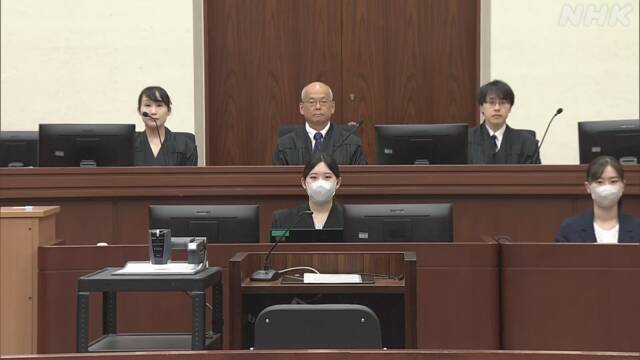The first trial of Dentsu Group as a corporation accused of violating the Antimonopoly Act and former executives of Dentsu, which is accused of fraudulently coordinating orders in a bid-rigging case involving the management of the Tokyo Olympic and Paralympic Games, was held, and while both admitted to being indicted for planning test tournaments, they reserved their admission or denial of the operations of the Games.
The Dentsu Group, a major advertising company, and Koji Itemi (55), a former executive, are accused of violating the Antimonopoly Act by fraudulently coordinating orders for projects totaling 56.437 billion yen, including bidding for test tournament planning work ordered by the organizing committee and managing the tournament together with Yasuo Mori (6), former deputy general manager of the organizing committee, and other companies.
At the first trial held at the Tokyo District Court, the Dentsu Group and defendant Itsumi admitted that "there was no doubt that there was a violation of laws and regulations in the planning work of the test tournament," but reserved the admission or denial of the operation of the tournament.
In its opening statement, the prosecutor's office asserted, "We thought that if we could cooperate with Deputy Director Mori to handle all the work related to the test event, we would be able to secure profits by prioritizing orders for sports and other events that Dentsu has a track record of, and that it could be used to expand the sports business after the Games."
In the bid-rigging case surrounding the Tokyo Games, a total of six companies, including a leading company in the advertising industry, and seven defendants, including the defendant Itemi, were indicted, and Deputy Director General Mori admitted the charges against him, whose trial began earlier.
Opening statement: The prosecution's argument was:
In his opening statement, the prosecutor's office explained how Dentsu became involved in work related to test events, saying, "Deputy Director Mori of the Organizing Committee felt a sense of crisis in the execution of test event-related work due to the lack of preparations, and around October 28, he asked Dentsu, which has a wealth of experience in managing sports events, to cooperate. On the other hand, Dentsu thought that if it could handle all the work related to test events, it would be able to secure profits by prioritizing orders for sports that Dentsu has a track record of and sports that are expected to develop in the future. We also thought that we could use it to expand our sports business after the Games as a way to strengthen our relationship with sports organizations, so we responded that we would cooperate with Deputy Director General Mori."
Regarding the background of the order adjustment, "Deputy General Manager Morimoto told former Dentsu executives that it would be difficult to outsource test event-related work to Dentsu alone from a financial point of view, and that he wanted to receive well-balanced orders from major advertising agencies with a track record of operating sports events and the ability to receive orders under an 'all-Japan system.' Dentsu also found it difficult to receive monopoly orders on its own due to manpower, etc., so it began to consider making adjustments and allocating them. Former executives and deputy directors have compiled a list of businesses scheduled to receive orders in the form of a list. Coordination was made sequentially among the relevant businesses, and an agreement was reached that each company would participate in the bidding for the business that was allocated to the allocated business, but not participate in the bidding for the venue that was not allocated."
He then asserted, "Of the 10 bids for test event planning work, only the prospective business operator participated in the bidding in 26 cases, and the planned business operator won the bid in 21 cases.

